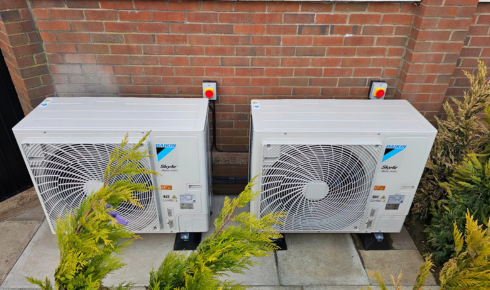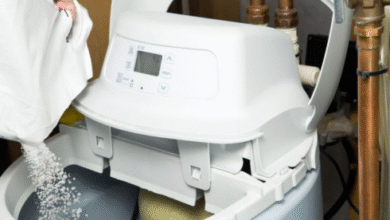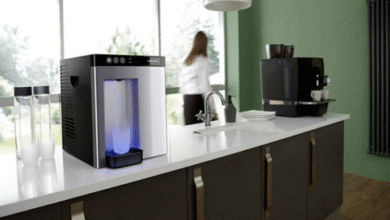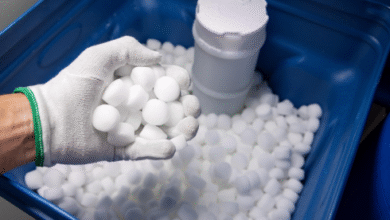Does Sunlight Really Affect Your Air Conditioner? Let’s Talk About Heat, Shade, and Smart Cooling Choices

There’s a strange irony in summer. The very season that brings us lazy afternoons, cold lemonade, and backyard barbecues also brings an unavoidable villain — heat. And for many of us, our air conditioners are the quiet heroes standing between bliss and sweat. But here’s something that often goes overlooked: sunlight. Specifically, how much of it your AC unit actually gets.
If you’ve ever stepped outside on a 100-degree day and placed your hand on your outdoor condenser, you already know — that metal box gets hot. Really hot. Which leads to a common question homeowners often wonder but rarely get a straight answer to: does sunlight hurt your AC’s performance? Or to put it another way, is it bad to have your ac outdoor unit in sunlight all day long?
Let’s unravel that, one warm breeze at a time.
The Science of Heat and Cooling
To understand how sunlight impacts your air conditioner, we need to talk about how the system works. Your outdoor unit — the condenser — is responsible for releasing the heat absorbed from inside your home. It does that through coils, fans, and a process that’s basically the opposite of what’s happening inside your evaporator coil.
Now, imagine trying to cool off while standing under the blazing sun. That’s exactly what your condenser is doing. When it sits in direct sunlight, it has to work harder to release heat. The warmer the surrounding air, the less efficient the heat transfer process becomes. That means more energy use, longer cycles, and, unfortunately, higher electricity bills.
Still, sunlight alone isn’t the villain. It’s a factor, sure, but it’s not always catastrophic. If your system is properly maintained and the airflow around the condenser is clear, it can handle a bit of sunshine. But when the temperature rises and that unit’s cooking under the afternoon sun, even the toughest system can start to feel the strain.
When the Sun Beats Down on Your Windows
It’s not just outdoor units that struggle with sunlight — your indoor cooling can suffer too, especially if you rely on window-mounted air conditioners. Ever noticed how some rooms take forever to cool, even when the AC’s running full blast? Sometimes, that’s because of where the unit sits.
If you’ve got a window air conditioner in direct sunlight, it’s not just fighting the heat inside your room — it’s fighting the sun baking its metal casing. The compressor and coils inside that little box are doing double duty, trying to remove heat while also being cooked by it.
The result? Slower cooling, increased wear and tear, and energy bills that make you sigh when they arrive. Even shifting the unit slightly — or using a simple awning or shade cover — can make a world of difference. You’d be amazed how a few degrees of relief on the exterior surface can translate into faster, more efficient cooling indoors.
Should You Shade Your Unit? Let’s Settle It
This is where homeowners get divided. Some swear that shading their condenser made a night-and-day difference in performance. Others claim it doesn’t matter at all. So, who’s right?
The answer, like most things in home maintenance, lies somewhere in the middle. Shading can help, but only when it’s done right. Throwing a tarp over your system or surrounding it with bushes isn’t the answer — that can actually make things worse by restricting airflow.
So, should i shade my ac unit? Generally, yes — but thoughtfully.
If you can add shade from a tree, a screen, or even a purpose-built canopy without blocking the air circulation, you’ll likely see improved efficiency. Studies have shown that shaded units can run up to 10% more efficiently in extreme heat. The air around the condenser stays cooler, helping it dump heat more effectively.
Just remember, airflow is non-negotiable. Your unit needs space to breathe. Anything that traps heat or prevents proper ventilation can backfire, creating the exact problem you were trying to avoid.
A Little Maintenance Goes a Long Way
Sunlight aside, the biggest killer of efficiency is neglect. Dirt, debris, and overgrown plants can choke your condenser, forcing it to work harder. The fan blades pull in air, and if those coils are caked in grime, the system can’t get rid of heat properly.
A quick rinse with a garden hose every month or two (with the power off, of course) can make a world of difference. If you’re feeling ambitious, a light coil cleaner spray will help break down the dirt that water can’t.
Also, check for clearance. Your condenser should have at least two feet of open space around it. Trimming shrubs or moving patio furniture can improve airflow dramatically.
And inside your home, replace air filters regularly. Poor airflow inside means the outdoor unit has to work harder, especially when temperatures spike.
The Myth of “Bigger Is Better”
Here’s another thing homeowners often misunderstand: upgrading to a bigger system doesn’t always mean better cooling. In fact, an oversized unit can short-cycle — turning on and off too frequently — which not only wears out parts but also leads to uneven temperatures and poor humidity control.
Instead of replacing your unit outright because it struggles during heat waves, it’s worth having a professional inspect the setup. They’ll check for refrigerant levels, duct leaks, and even whether your condenser’s placement is making it harder for the system to perform efficiently.
Sometimes, the solution isn’t a replacement — it’s as simple as repositioning or shading the existing unit.
Practical Ways to Help Your AC Cope with Heat
You can’t move the sun, but you can make life easier for your air conditioner. A few small steps can have a surprisingly big impact:
- Add a shade structure: A lattice panel or pergola nearby (but not directly over the unit) can create partial shade while maintaining airflow.
- Plant smart: Trees or shrubs on the south and west sides of your home can block harsh afternoon sun, naturally cooling the area. Just keep them trimmed.
- Insulate: Poor insulation inside your home puts extra strain on your AC. Sealing leaks and improving attic insulation helps your system work less, even on the hottest days.
- Schedule maintenance: Have a technician inspect and clean your system annually — especially before summer hits.
These are small, inexpensive fixes that pay off in lower bills and longer system life.
The Comfort Equation
At the end of the day, your air conditioner doesn’t ask for much — just a little care, clear airflow, and a break from the blazing sun. Whether it’s a whole-house system or a compact window unit, heat exposure can affect performance more than most people realize.
The goal isn’t to baby your system but to understand how it works with its environment. A shaded, well-maintained AC runs quieter, cools faster, and lasts longer — and honestly, who wouldn’t want that?
So the next time you catch your condenser glinting in the sun, give it some thought. Maybe that simple question — “Does the sun really matter?” — deserves more credit than you’d think.




